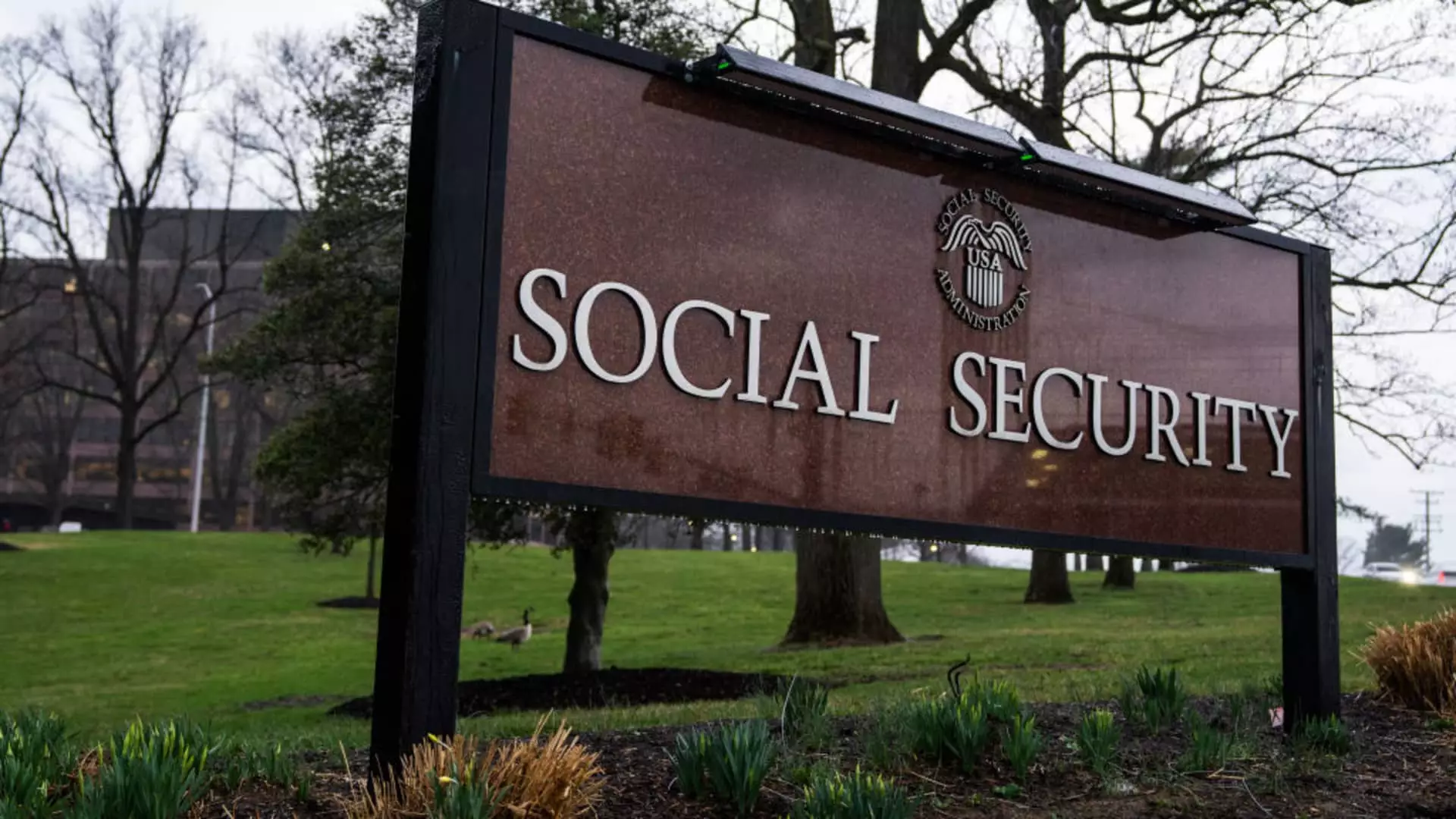In a striking legal showdown, a federal judge has intervened to halt the Trump administration’s Department of Government Efficiency (DOGE) from delving into sensitive personal data managed by the Social Security Administration (SSA). This ruling underscores the growing tension between governance and personal privacy, particularly when it involves entities with unconventional ties, like Tesla’s CEO Elon Musk leading DOGE. Judge Ellen Lipton Hollander’s decision not only blocks access to vital information but raises significant questions about the length to which government agencies should go in their pursuit of efficiency, especially at the expense of individual privacy rights.
The implications of this ruling are profound. The SSA oversees an essential service that affects millions of Americans, distributing benefit checks to retirees and disabled individuals. Thus, the judge’s order serves as a critical reminder that while the need for efficiency in government operations is apparent, it should not come at the cost of violating personal privacy. The court’s decision reflects a growing societal concern about who gets to access our data and for what purposes—a question that deserves far more scrutiny.
The Conundrum of Leadership at the SSA
Acting commissioner of the SSA, Lee Dudek, finds himself in an increasingly precarious position. His recent comments suggest that the ruling could severely limit the agency’s operational capabilities, drawing attention to the chaos brewing within the SSA under his stewardship. Dudek accused the court order of being overly broad, indicating that essential teams dealing with anti-fraud measures and IT support could be classified as DOGE affiliates under the ruling. This serves to highlight not merely a bureaucratic challenge but an existential crisis for an agency tasked with safeguarding the financial stability of so many Americans.
Critics like Lee Saunders, president of the American Federation of State, County and Municipal Employees (AFSCME), have painted Dudek’s leadership as “way over his head,” accusing him of undermining the integrity of the agency. This critique raises pertinent questions about the qualifications and decision-making practices of individuals appointed to oversee critical public institutions, particularly during turbulent political climates.
The Fallout: Fear and Uncertainty Among Beneficiaries
Advocacy groups have expressed deep distress over the judge’s ruling, fearing that even a temporary disruption could threaten the timely distribution of benefits, thereby endangering the livelihoods of countless individuals dependent on Social Security. The historical context is important here: Social Security has maintained an impeccable record for nearly 90 years without failing to deliver a paycheck. Yet, just over 60 days into the Biden administration, this system faces unprecedented disruption. Such instability doesn’t just provoke outrage; it stirs fear among beneficiaries who rely on these payments for basic living expenses.
Nancy Altman, president of Social Security Works, wasted no time in rebuking Dudek’s leadership, branding it the “darkest in Social Security’s nearly 90-year history.” The language of “chaos and destruction” encapsulates fears that political maneuverings and goodwill may not suffice to keep day-to-day operations of this lifeline running smoothly. If individuals feel insecure in their financial futures, the broader implications are alarming.
Political Divides: A War of Words
The tumultuous atmosphere surrounding the SSA hasn’t escaped the watchful eye of Congress. Political actors are weaponizing the developments for their agendas, with leaders like Congressman Richard Neal labeling the situation a “five-alarm fire.” By framing the current challenges as “back-door benefit cuts,” Neal raises crucial ethical issues about governance during a time of political division, urging a collective responsibility to protect vulnerable populations.
On the flip side, Republican voices like Congressman Jason Smith counter that Democrats are merely using the situation to score political points, arguing that the actions taken during the Trump administration did not adversely affect Social Security benefits. Such polarized arguments reflect deeper cultural divisions over governmental oversight, efficiency, and the public’s trust in institutions designed to protect the populace.
Data Privacy vs Government Efficiency: The Moral Tug-of-War
This incident illustrates a significant moral tug-of-war between the necessity for effective governance and the fundamental right to privacy. As government agencies pivot towards efficiency, the specter of overreach looms large. Who decides how far is too far when it comes to accessing personal data in the name of national efficiency? These are not just administrative headaches but critical moral dilemmas that demand urgent public discourse.
The outcome of this legal battle is yet to be seen, but its consequences will reverberate well beyond the Social Security Administration. In an age where data is seen as the new oil, protecting private information must become a priority, ensuring that the drive for efficiency does not sacrifice the privacy and security of American citizens. With the stakes this high, it is vital that we keep the conversation alive, questioning the balance between government oversight and the civil liberties of the people it serves.

